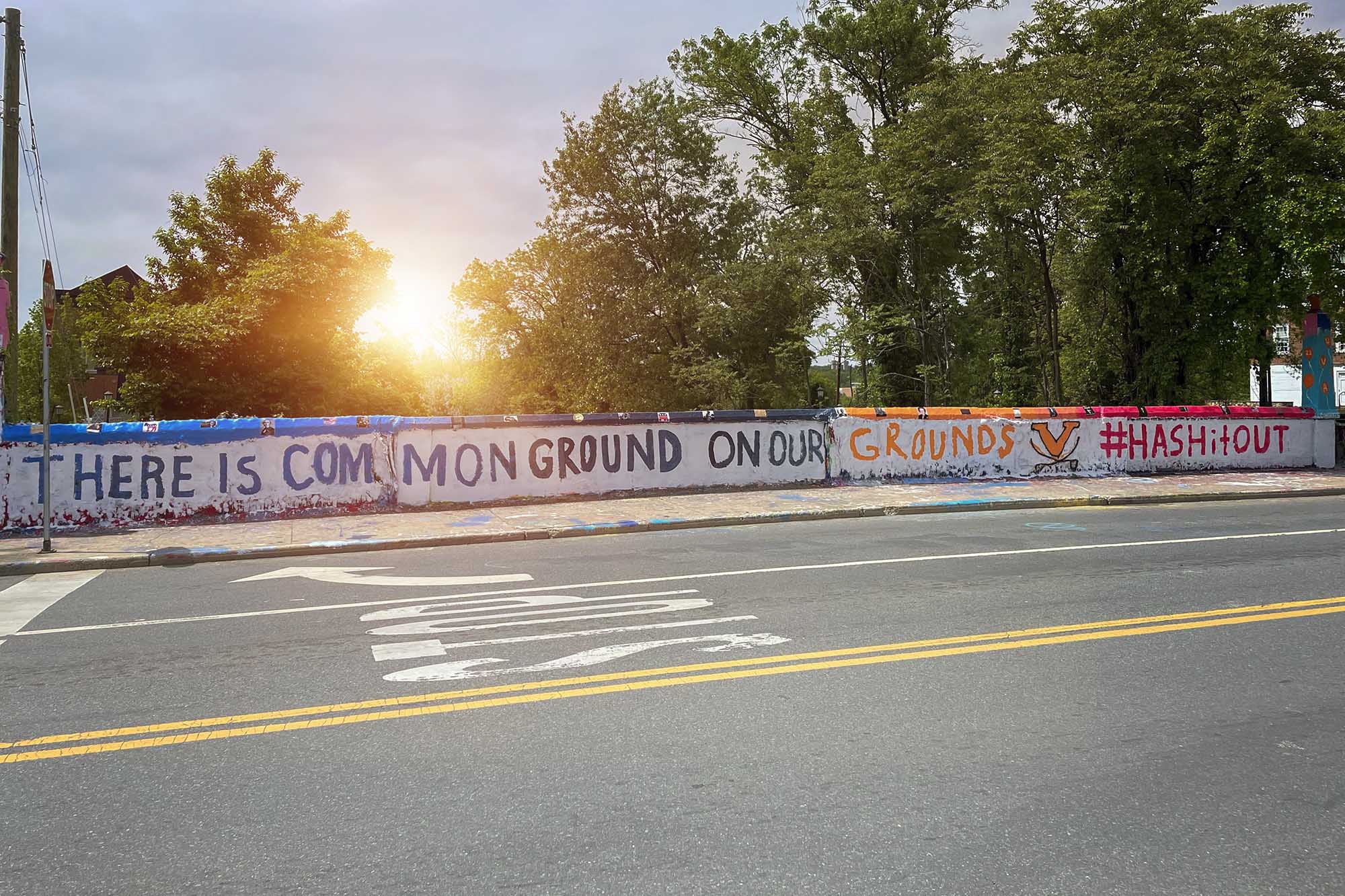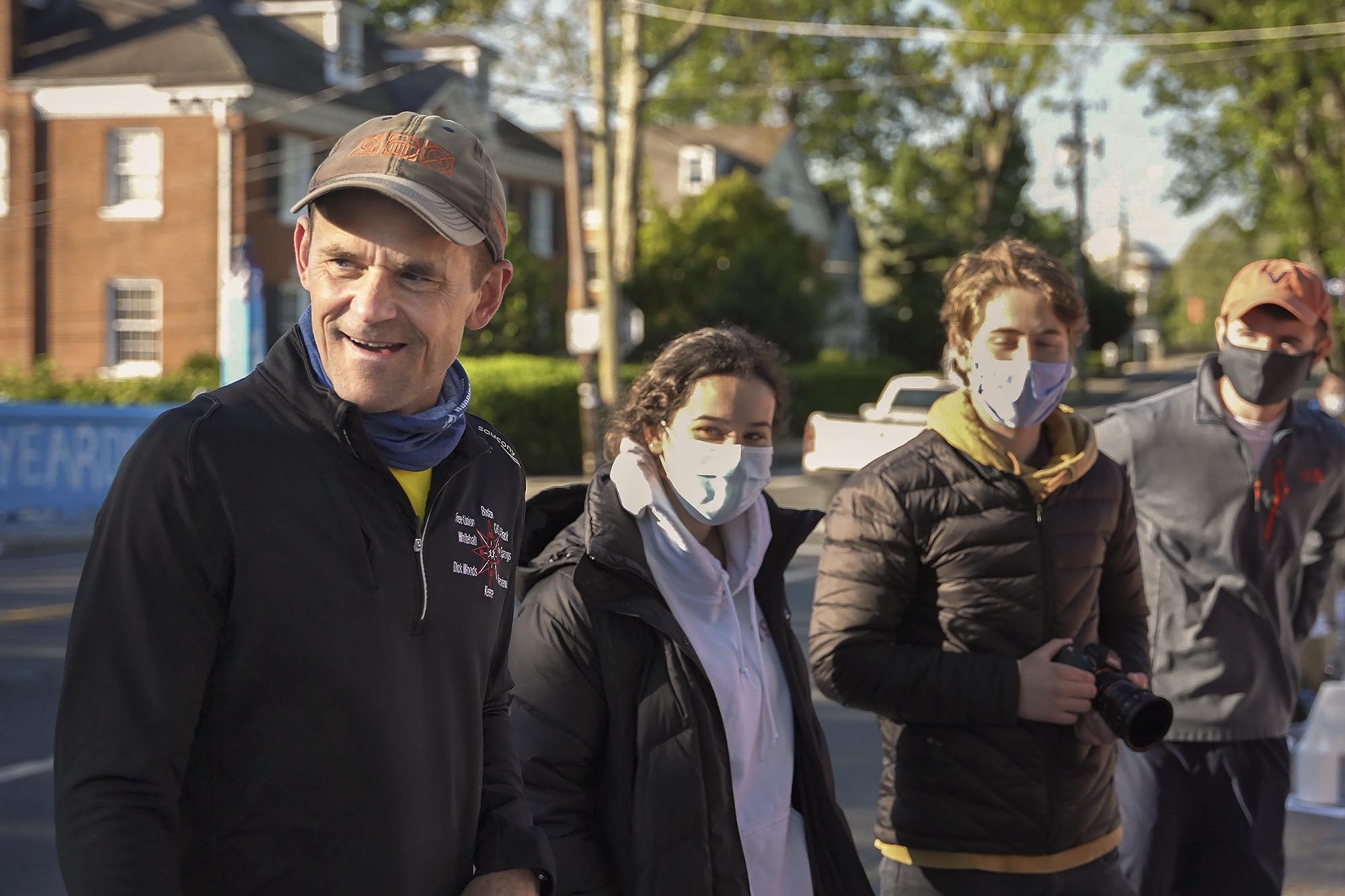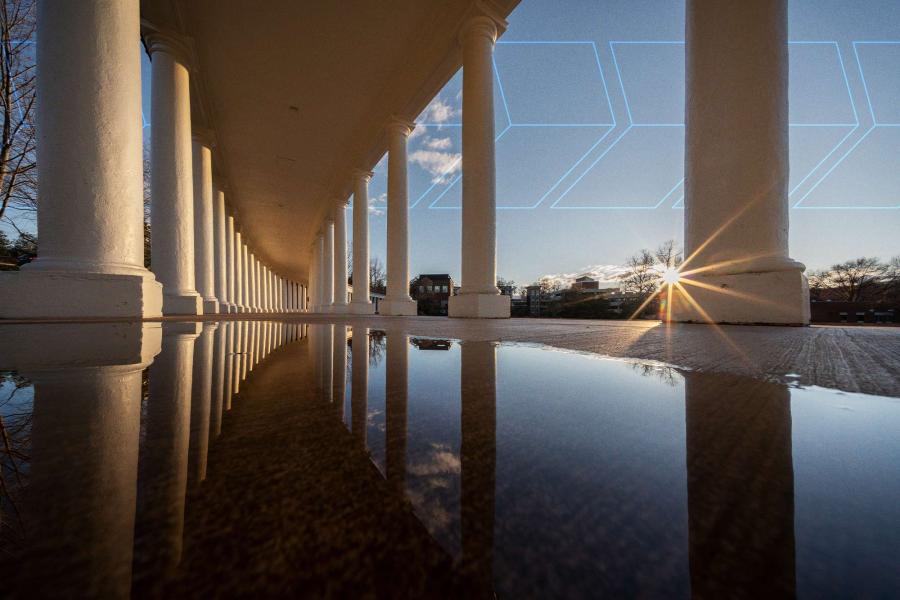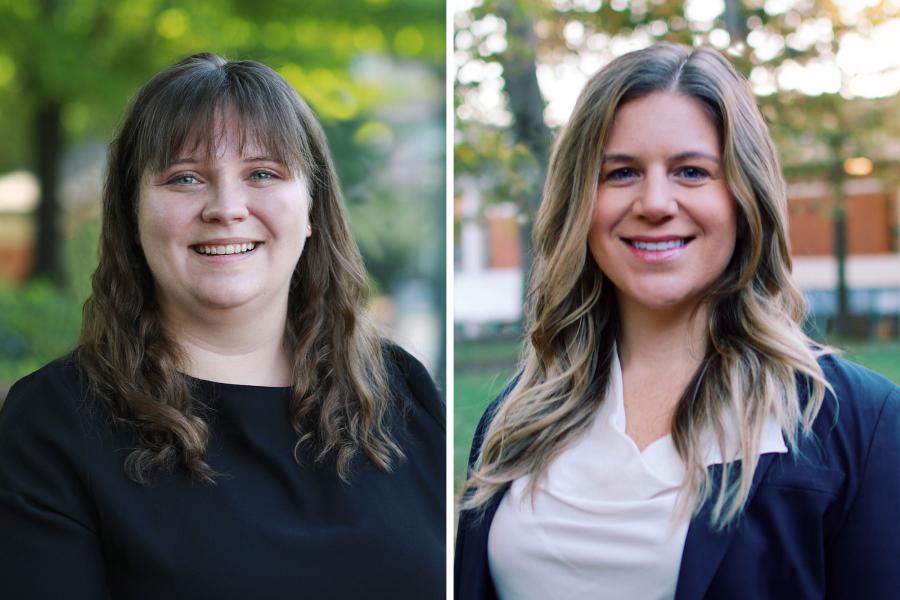Late last week, a group of University of Virginia students representing a wide range of political views gathered with UVA Center for Politics student interns to paint a picture of unity on Beta Bridge.
Their message – “There is common ground on our Grounds,” with the tag #hashitout – is simple, but well worth remembering in a time of intense political polarization. Even the color scheme is significant, with Democratic blue and Republican red merging into UVA’s colors of navy and orange.
The students who wielded the paintbrushes hold drastically different political beliefs. Some are part of the Republican Party or more conservative organizations on Grounds, while others are part of more liberal student groups or align with the Democratic Party. The point, student organizers said, is that however different their beliefs, they share at least one common goal: fostering productive debate and discussion.
“We started thinking about Beta Bridge as a form or representation of free speech. In some cases, it has been a kind of battleground, where different groups fight it out with different messages,” said third-year foreign affairs student Raed Gilliam, one of the Center for Politics interns who helped organize the Beta Bridge outing. “We wanted to agree on a message and paint it together, and it became part of our larger film project.”
The project Gilliam references is a documentary called “Common Grounds,” a semester-long project for Gilliam and several fellow Center for Politics interns. The project team includes Gilliam; second-year students Molly Hayes and Miranda Hirts; third-year government student Sean Piwowar; and School of Education graduate student Victoria Spiotto. All were interns at the Center for Politics this semester.
The documentary, now in editing, will have three parts: individual interviews with students of widely differing political beliefs; a small group discussion bringing some of those students together; and the final scene at Beta Bridge.
“We invited students who were extremely committed to what they believe, at either end of the political spectrum, and who were not going to compromise on things that were important to them,” Piwowar, a government major, said. “Even though their beliefs were very different and they were not necessarily going to compromise on those, they could express those beliefs and have those conversations with each other.”
“The point was never to have people compromise on their political beliefs, but to see if they would be willing to talk about those beliefs in an effort to understand each other,” said Hayes, who is studying public policy. “Many times, those interactions only occur over social media, which can be difficult. We wanted to get people to talk in person.”











